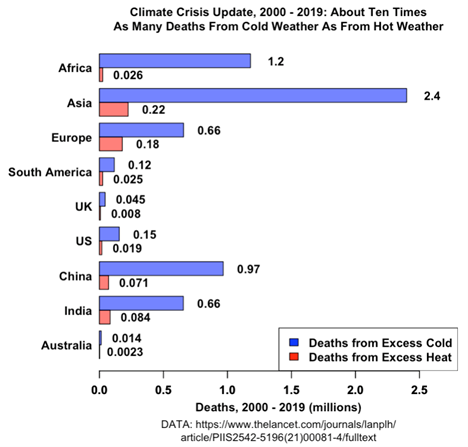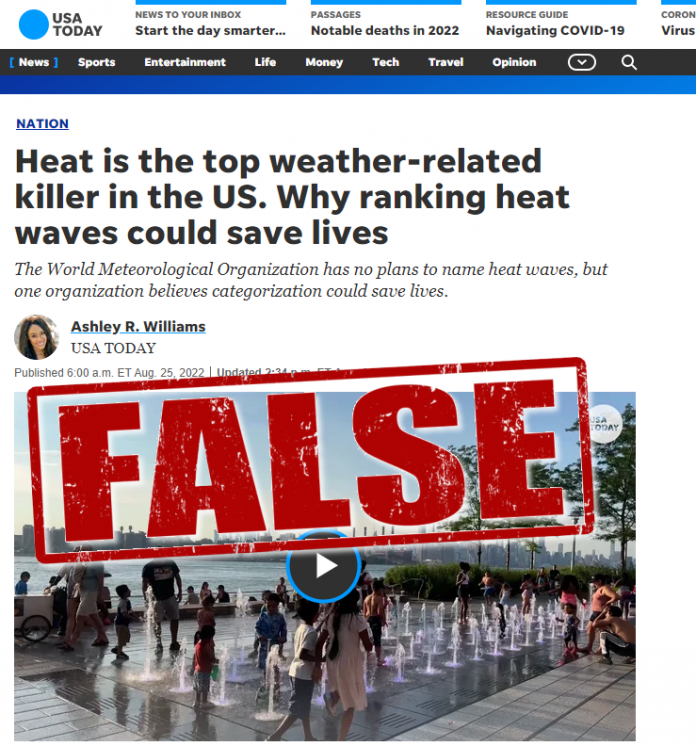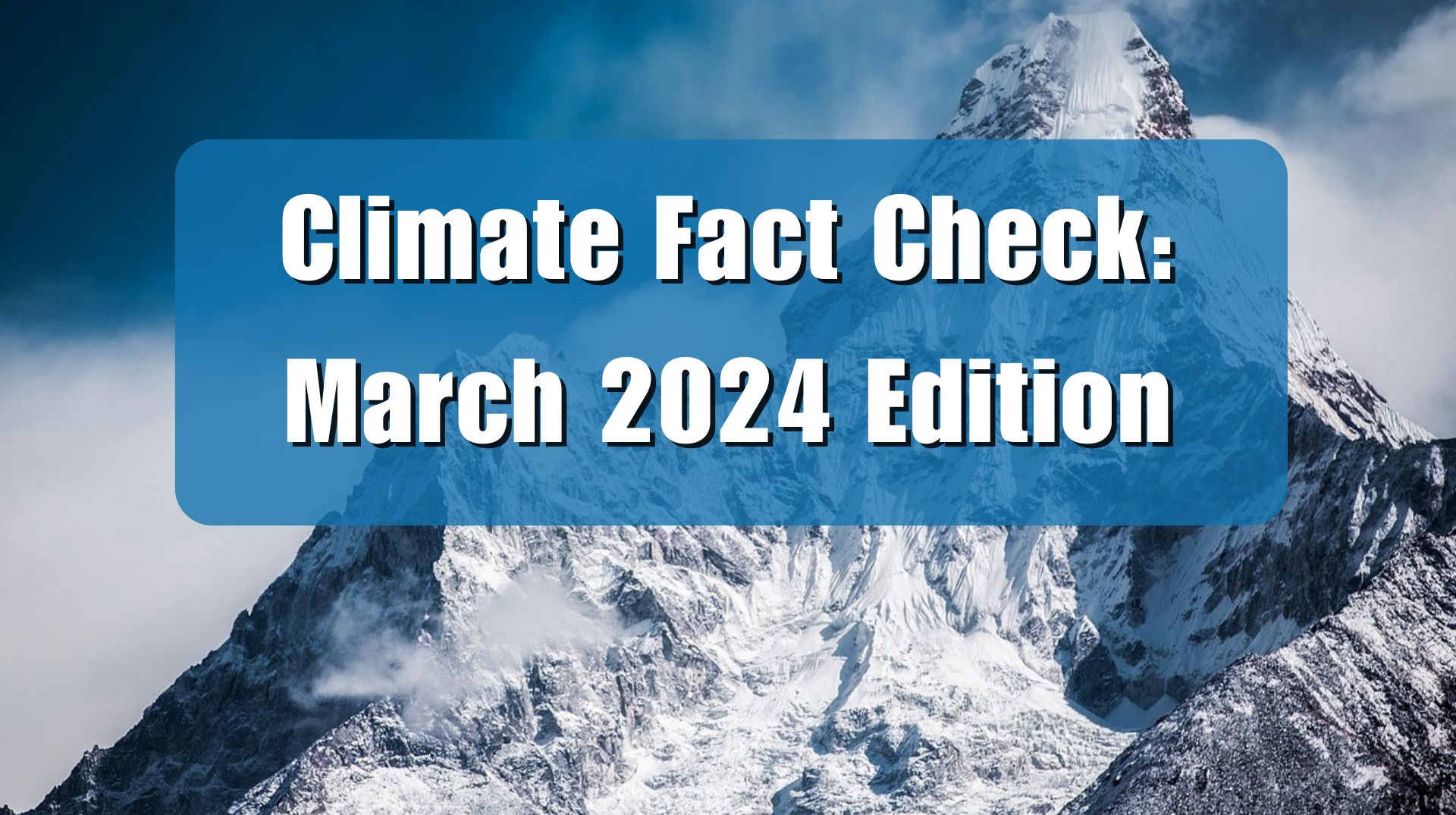A story in the September 12 edition of USA Today, titled “California becomes first US state to begin ranking extreme heat wave events,” erroneously claimed that excessive heat is the top weather-related killer in the United States, with an accompanying sidebar story, “Why ranking heat waves could save lives.” This is false. Recent peer-reviewed science proves that cold, not heat, is the number one cause of human weather-related mortality.
As Climate Realism reported in, Media Misrepresents Study Showing Cold Related Deaths Outnumber Heat Related Deaths Ten-to-One, research published in the July 1 2021 edition of the prestigious medical journal The Lancet came to two irrefutable data-based conclusions: cold temperatures contribute to far more deaths each year than warmer temperatures; and deaths associated with extreme temperatures, hot or cold, are declining.
In the study, titled “Global, regional, and national burden of mortality associated with non-optimal ambient temperatures from 2000 to 2019: a three-stage modelling study,” 68 scientists representing universities and research institutes in 33 countries spanning all regions of the world, concluded as the earth modestly warms, deaths caused by non-optimum temperatures are declining dramatically. The study states:
[T]his study is the first to provide a global overview of mortality burden attributable to non-optimal temperatures and the temporal change at a spatial resolution of 0·5° × 0·5° between 2000 and 2019—the hottest period since the pre-industrial age. We modelled the variation in the exposure–response relationship between temperature and mortality, reducing the uncertainties of the mortality burden, using data on more than 130 million deaths from 43 countries, which are located in five continents and characterized by different climates, socioeconomics, demographics, and development levels of infrastructure and public health services. The large sample size and its representativeness improved the generalizability of our results. We found that 5,083,173 deaths were associated with non-optimal temperatures per year. … Most of these excess deaths were explainable by cold temperatures.
According to the study, there has been a small, possibly statistically insignificant 0.21 percent increase in heat-related deaths since 2000. Meanwhile, deaths tied to cold temperatures declined by 0.51 percent. Because cold-related deaths outnumber heat-related deaths by 10 to one, the number of deaths associated with non-optimal temperatures declined by tens of thousands since 2000.
Figure 1 illustrates The Lancet study data.

This study confirms what previously published research has consistently shown but climate alarmists have dutifully ignored or outright lied about: cold, not heat, is the biggest temperature-related killer.
A study published in the Southern Medical Journal, and research undertaken by the BBC and staff at the U.S. Department of the Interior, all confirm more people die from cold than heat.
In 2015, The Lancet published the results of a large-scale temperature/mortality study in which the researchers found cold weather, directly or indirectly, killed 1,700 percent more people than warm or hot weather. The scientists examined health data from 384 locations in 13 countries, accounting for more than 74 million deaths.
The authors of that 2015 Lancet study wrote:
[N]on-optimum ambient temperature is responsible for substantial excess in mortality, with important differences between countries. Although most previous research has focused on heat-related effects, most of the attributable deaths were caused by cold temperatures. Despite the attention given to extreme weather events, most of the effect happened on moderately hot and moderately cold days, especially moderately cold days.
Yet, USA Today and California ignore such data and think heat is the bigger problem, and that somehow, providing a numerical ranking of heatwaves will be effective in reducing deaths from heat.
If California wants to prevent deaths during heat waves, a fictional ranking system won’t help as much as working to keep the California power grid stable, so that people can get through heat waves with electrically powered fans and air conditioning. During the heat wave of August 2020, California’s electric grid came within minutes of collapse due to an over-reliance on unreliable wind and solar energy. Take note, California politicians and bureaucrats, ensuring reliable and affordable electricity during heat waves will prevent far more heat related deaths than any heat wave ranking number ever could.
Also, rather than making false claims about deaths from heat waves to push the narrative that the world is facing a climate crisis, USA Today should follow the best tradition of journalism: do research and follow the facts. If it had done so it would have found fewer people are dying from non-optimum temperatures than ever before. That’s good news the public should know.

















Heat is blown more out of proportion than even covid.